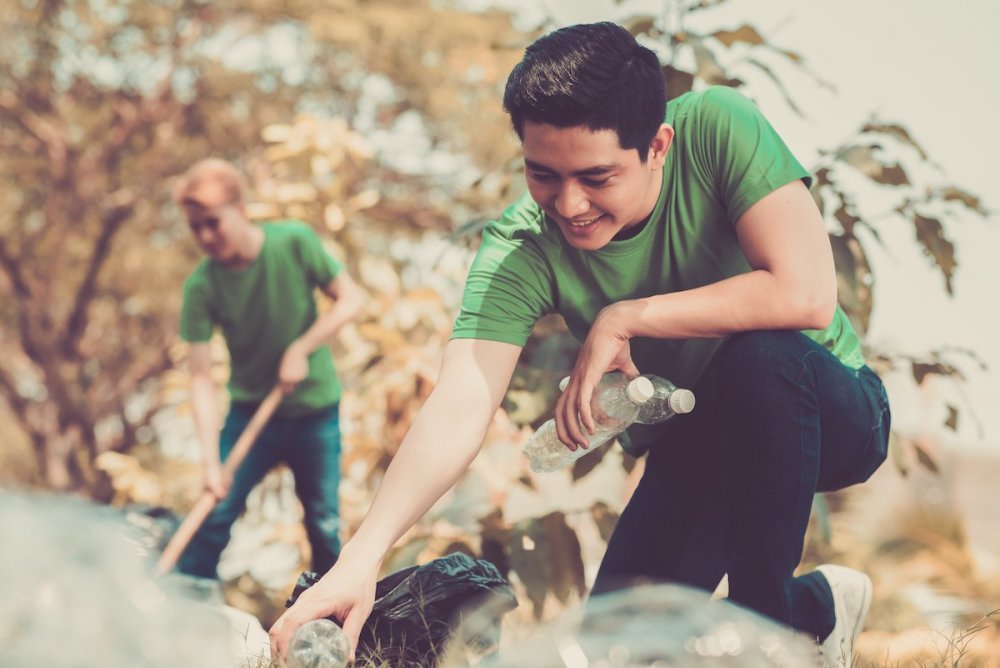Choosing kindness over negativity or indifference may not be humanity's default setting, but we can cultivate it over time through consistent action. Sonia Vadlamani suggests 7 ways in which we can always be kind towards others – and ourselves, too.
The discussion around kindness has heightened ever since the COVID-19 pandemic unfolded, perhaps owing to the rise of various aid groups during lockdowns and contingencies, or because the interruption of life as we knew it caused us to reconsider our priorities and values.
Indeed, kindness is undoubtedly considered one of the most prized social currencies, in addition to being the cornerstone for humankind’s virtues. Philosophers and spiritual gurus have hailed the virtue of choosing kindness as a potent gift for centuries, while academic researchers and psychologists have conducted considerable research centered on the power of kindness.
Still, at some point in our lives, most of us have been denied a more compassionate approach by someone, or have disregarded the option to extend kindness towards others. For example, we may have regretted our indifferent or judgmental behavior towards others, and some of us may have been abused or bullied as adults. In situations such as these, letting go of resentment doesn't come naturally.
So, with the wide-ranging benefits of kindness so well known, why do we even need to be reminded to choose kindness – why don’t we 'just be kind' all the time?
Why Choose Kindness?
It's fair to wonder why we should have to 'choose' kindness, rather than it being our natural state. However, our perennially busy and fast-paced lives may have rendered us indifferent to the suffering and problems of those around us. Furthermore, our inherent negativity bias may persuade us to react strongly to unfavorable or unpleasant outcomes, instead of assessing the situation in a more objective light.
Additionally, human beings are wired to judge others according to their character and actions, while they tend to judge themselves based on the situation. This tendency – also known as “fundamental attribution error” – is based on the inconsistency in our reaction towards other people’s actions or views. While we may attribute our failures or decisions to the circumstances we were caught up in during a situation, we do not readily assess other people’s behavior and problems in the same understanding manner.
MORE LIKE THIS:
- What Goes Around Comes Around: Is Karma Real?
- How to Forgive Someone: the Benefits of Letting Go of Grudges
- How to Be Nicer: 9 Ways to Show Kindness to Others
For example, if I ever park too close to someone else’s car, then I must have had an emergency, and hence it should be forgiven as a one-off incident. However, if someone else parked outside their line so that their vehicle encroaches on my parking spot, then they must be irresponsible and need to be taught a lesson! Does this line of thinking seem familiar to you?
 Donating to a food bank is one way to choose kindness
Donating to a food bank is one way to choose kindness
Indeed, choosing to be kind can bring about a much-needed shift in the way we judge. Always being kind can teach us to look carefully and objectively at the way we react to external stimuli and assess the circumstances before we react in a rude or harsh manner.
How to Always Be Kind
“Be kind whenever possible. It is always possible,” as the 14th Dalai Lama famously stated. Choosing kindness poses several benefits for us and others around us, yet costs nothing. To cultivate kindness as a daily practice, Dr Tara Cousineau – renowned psychotherapist and author of The Kindness Cure – suggests that we ponder over the question: how can I bring kindness into my day, in any small way?
“Choosing kindness can bring about the much-needed shift in the way we judge. Being kind can teach us to look carefully and objectively at the way we react to external stimuli.”
“Kindness is not random,” says Dr Cousineau. She explains that choosing kindness intentionally requires us to be compassionate, considerate, understanding and forgiving, in a consistent manner, even on the days we may not feel like it. Authentic kindness requires genuine intention and effort. The process of always showing graciousness and tolerance to others in this way may gradually get easier once we start experiencing the joy or cheer that being kind sparks.
How Does Adopting Kindness Benefit Us?
Being kind comes with a wealth of research-backed benefits. Acting kindly can make us feel less anxious, and can ease social avoidance tendencies, allowing us to form meaningful connections. Kindness can also combat psychological distress and alleviate depression.
A study by Dr Hans Kirschner from the University of Exeter revealed that being kind switches off our inbuilt threat response, allowing us to feel safe and relaxed. In turn, this promotes tissue regeneration and healing in the body. This ability to switch off the threat response can reduce the onset of disease and boost our well-being.
Choosing Kindness: 7 Ways
Cultivating kindness in our daily routine begins with consistent action. Researcher Helen Weng compares the ability to practice kindness with the science of weightlifting, wherein one can build their ‘compassion muscle’ and get more adept at helping others with sufficient practise. Here are seven ways in which we can try to do just that.
1. Create a kindness plan
It's possible to adopt kindness in the way of small gestures and little things that can spread happiness and brighten someone’s day. Jot down one act of kindness for each day of the month – for others and yourself – that you can carry out, thus encouraging the neural pathways in your brain towards embracing positivity and compassion.
The Random Acts of Kindness Foundation shares a comprehensive list of kindness ideas that can be carried out with minimal effort. Some examples of random acts of kindness can include:
- Buying a few extra items at the supermarket for donations – many supermarkets now have designated areas where you can leave produce. Alternatively, look into ways of donating to food banks.
- Complimenting a stranger in a friendly way.
- Befriending an elderly person to help them combat loneliness: inviting them for a chat over a coffee or sparking a conversation at the bus stop.
- Supporting local businesses by buying their products instead of shopping online.
2. Practise compassionate listening
Offering someone our undivided attention in the form of mindful listening can be a simple, effective and free way to choose kindness. Remember, it is essential to keep all technological distractions and our inner judgmental voice at bay while we listen compassionately.
3. Donate or raise funds for charity
A 2010 survey conducted by Harvard Business School pointed out that individuals who were more generous financially and made sizeable charitable donations measured highest for overall happiness levels. The study revealed that prosocial spending, or utilizing one’s financial resources to help others, resulted in improved emotional well-being.
RELATED: Money Can't Buy Happiness (Except in These 3 Ways!)
Raising funds for animal welfare, organizing a fundraiser for the care of cancer patients at your local hospital, helping a neighbor who may be facing a crisis by organizing a charity drive, are some of the ways you could bring about a positive change by choosing kindness.

A volunteer litter pick shows kindness to the planet
4. Choose to be kind online
While the advent of social media has made us more aware and conscious, unfortunately it also has given rise to rampant cyberbullying and hostile behavior based on one’s appearance, ethnicity, gender stereotypes, and personal beliefs, etc.
We can choose kindness online by encouraging positive messages, spreading cheer and love instead of hate, and ignoring negative or hateful content. Even when we disagree with someone, it's always possible to do so in an objective and respectable manner.
5. Choose kindness for the planet
While gardening offers several mental health benefits as a hobby, it can contribute towards greener and cleaner living spaces as well. Finding small ways to reduce our carbon footprint and adopting more sustainable practices like picking up litter, packing a waste-free lunch, carrying your own tote to grocery shop, etc, can go a long way to improve the world around us.
6. Practise kindness at work
It's important to remember that coworkers have their own challenges, hidden from plain sight. Leading with compassion can improve morale, boost workplace productivity, and ensure higher employee retention, according to research.
“Choosing kindness requires us to be compassionate, considerate, and forgiving in a consistent manner, even on the days we may not feel like it.”
Leaders in the service industry – and hospitality sector in particular – quite possibly realize the importance of choosing “habitual kindness”, in attempts to deliver experiences that customers will remember for ever. Indeed, consumer decisions are often based on how well their expectations were met and the collective experience, so if you find yourself being loyal to a particular brand or service provider, it's probably because their leadership drives down kindness as their core value.
7. Be kind to yourself
Always being kind towards yourself becomes more crucial than ever during adverse times, or when you are feeling blue. After all, it’s harder to practice kindness towards others when you’re stressed or overwhelmed. Befriending yourself gently through self-compassion and self-care is the first step towards choosing kindness.
RELATED:
- Be Good to Yourself: 8 Self-Love Techniques
- How to Stop Beating Yourself Up
- Self-Forgiveness: How to Forgive Yourself in 7 Steps
Psychologist Kristen Neff suggests establishing helpful self-compassion breaks when you find that you’re stressed or being too harsh on yourself. Place a hand over your heart and practice saying to yourself: “May I regard myself in a gentler, fair light”, or, “May I bring kindness to this moment, even when I’m stressed.” These self-compassion statements will help you centre your attention back to choosing kindness for yourself.
The Takeaway: Choosing Kindness
As the famous saying goes, “In a world where you can be anything, be kind”. While we may not remember every person we ever met by their name, we are likely to remember each act of kindness shown to us.
Indeed, choosing kindness as a daily practice can offer a host of physiological and psychological benefits. Deciding to always be kind – especially in situations where our inner voice is telling us to escalate conflict – does take practice, but it can also create long-lasting happiness for others, as well as ourselves. ●
Images: shutterstock/BAZA Production, shutterstock/Dragon Images
happiness.com | The fine art of being: learn, practise, share
Are you a happiness.com member? Sign up for free now to enjoy:
■ our happiness magazine with practical life tips
■ share and support others in our happiness forum
Altruism | Empathy | Gratitude | Acceptance
Written by Sonia Vadlamani
 Fitness and healthy food blogger, food photographer and stylist, travel-addict and future self journaler. Sonia loves to write and has resolved to dedicate her life to revealing how easy and important it is to be happier, stronger and fitter each day. Follow her daily pursuits at FitFoodieDiary or on Instagram.
Fitness and healthy food blogger, food photographer and stylist, travel-addict and future self journaler. Sonia loves to write and has resolved to dedicate her life to revealing how easy and important it is to be happier, stronger and fitter each day. Follow her daily pursuits at FitFoodieDiary or on Instagram.





Join the conversation
You are posting as a guest. If you have an account, sign in now to post with your account.
There are no comments to display.